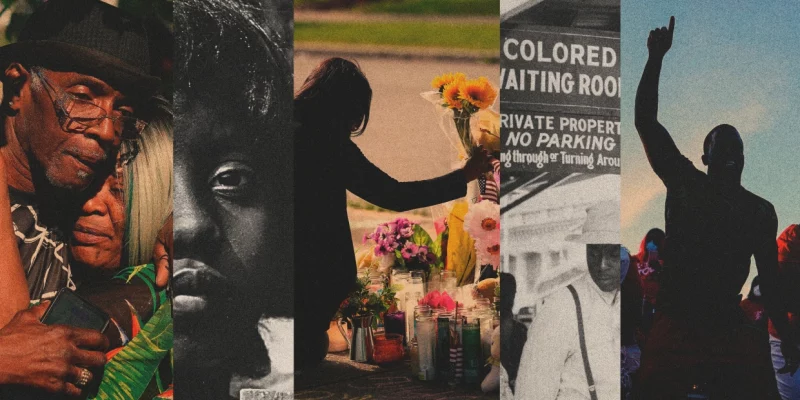The Buffalo shooting was centuries in the making, experts say
Share
Explore Our Galleries
Breaking News!
Today's news and culture by Black and other reporters in the Black and mainstream media.
Ways to Support ABHM?
By Char Adams, NBC News
The Buffalo shooting was not a “lone wolf” incident but a continuation of centuries of white supremacist terrorism, experts say.

Some 2,000 Black people were killed from 1865 to 1876, during the Reconstruction era, the result of a widespread effort to use white supremacist terror to maintain economic, political and social control over newly emancipated Black people, according to the Equal Justice Initiative. This reign of terror worked to stamp out any semblance of Black progress after slavery, working hand in hand with oppressive Jim Crow laws that enforced legal segregation throughout the country for decades.
A white man is accused of continuing this legacy of white supremacist terror on Saturday when he allegedly traveled to a supermarket in a Black neighborhood in Buffalo, New York, and killed 10 people, most of them Black.
Experts say his act was not episodic or unprecedented, but is part of America’s violent history of using racial terror to intimidate and exert power over Black people. In the days since the shooting, conversations about hate crimes and gun control have consumed the nation. But experts say the Buffalo shooting must be viewed within the context of both historical racist backlash to Black existence and the white supremacist violence that has increasingly become normalized in the country today. The Buffalo shooting, experts say, is not a dangerous turning point for the country, but a continuation of the broad violence Black people in the U.S. have experienced for centuries.
“This is the product of America’s culture of violence, its deeply entrenched racism,” said Bernard Powers, director of the Center for the Study of Slavery in Charleston and the College of Charleston’s academic liaison for the Universities Studying Slavery consortium. The shooting “cannot be separated from it. It’s the product of the unwillingness of most white Americans to deal with and address white supremacy and white supremacist tendencies in their own communities.”
Keep reading to discover why anti-Black violence is as American as apple pie.
America has yet to reckon with the racism that led to Trayvon Martin’s death–and his killer’s acquittal. Many people still cannot accept the racist roots of slavery.









Comments Are Welcome
Note: We moderate submissions in order to create a space for meaningful dialogue, a space where museum visitors – adults and youth –– can exchange informed, thoughtful, and relevant comments that add value to our exhibits.
Racial slurs, personal attacks, obscenity, profanity, and SHOUTING do not meet the above standard. Such comments are posted in the exhibit Hateful Speech. Commercial promotions, impersonations, and incoherent comments likewise fail to meet our goals, so will not be posted. Submissions longer than 120 words will be shortened.
See our full Comments Policy here.